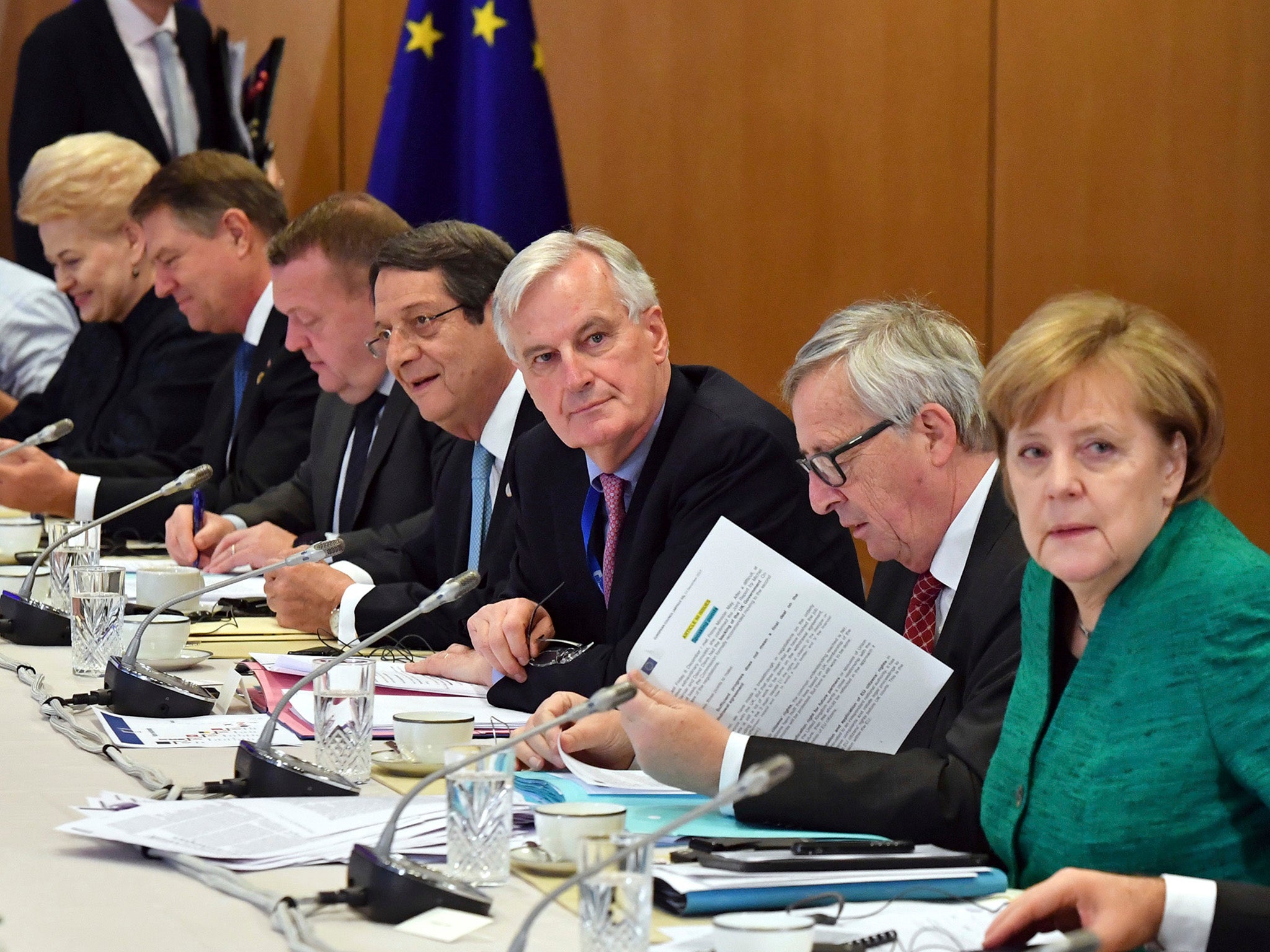EU says Brexit transition will end no later than 31 December 2020
Deadline just short of Theresa May's request for two-year implementation period

The European Union wants the Brexit transition period to end no later than the 31 December 2020, published documents show.
"The transitional arrangements should apply as from the date of entry into force of the Withdrawal Agreement and should not last beyond 31 December 2020," the European Commission's negotiating directives said.
The deadline coincides with the end of the EU's seven-year budget period and will come 21 months after Brexit's set date of March 2019.
Theresa May has formally asked for a transition to last around two years.
It had long been expected as the target end date of the transition, but it was the first official confirmation this is the official goal of the EU's negotiators.
The four pages of new directives for EU chief negotiator Michel Barnier were in line with guidelines issued by EU leaders at a summit on Friday and will form the basis of talks on the transition which Mr Barnier hopes to start next month.

They spell out that Britain will be effectively still a member of EU institutions, bound by all their rules including new ones, while not having a say in their making.
The EU will also offer Britain a non-voting place at some meetings where decisions may affect specific issues and will set up special arrangements for a UK role in setting annual EU fishing quotas.
The directives spell out more clearly that EU treaties with other countries and international organisations will no longer apply to Britain during the transition period.
However, the document adds: "Where it is in the interest of the Union, the Union may consider whether and how arrangements can be agreed that would maintain the effects of the agreements as regards the United Kingdom during the transition period."
This has been important to Britain since it could mean that it no longer benefits automatically from free trade agreements the EU has with, for example, Canada or South Korea, while, as the directives underline, it would still have to apply EU trade policy - for example collecting EU customs duty at UK ports.
Among elements spelled out more in the transition directives than in the leaders' guidelines last week was a repetition of a previously agreed EU position that everything applying to Brexit for Britain would also apply to other British territories.
Brussels has previously said the Spanish government must agree any future arrangements with Britain that affect the British territory of Gibraltar on Spain's southern coast.
Additional reporting by Reuters
Join our commenting forum
Join thought-provoking conversations, follow other Independent readers and see their replies
Comments
Bookmark popover
Removed from bookmarks